Sentence construction Reading Comprehension Worksheets for Ages 6-8
9 filtered results
-
From - To
Enhance your child's reading skills with our Sentence Construction Reading Comprehension Worksheets designed for ages 6-8. These engaging worksheets help young learners build their understanding of sentence structure, improving both reading fluency and comprehension. Through a variety of fun exercises, children learn to construct sentences correctly, making reading an enjoyable and educational experience. Each worksheet includes captivating stories followed by questions that encourage critical thinking and a deeper grasp of the material. Perfect for classroom use or at-home practice, these worksheets are an excellent resource for fostering literacy development in early learners. Get started today and watch your child’s skills soar!
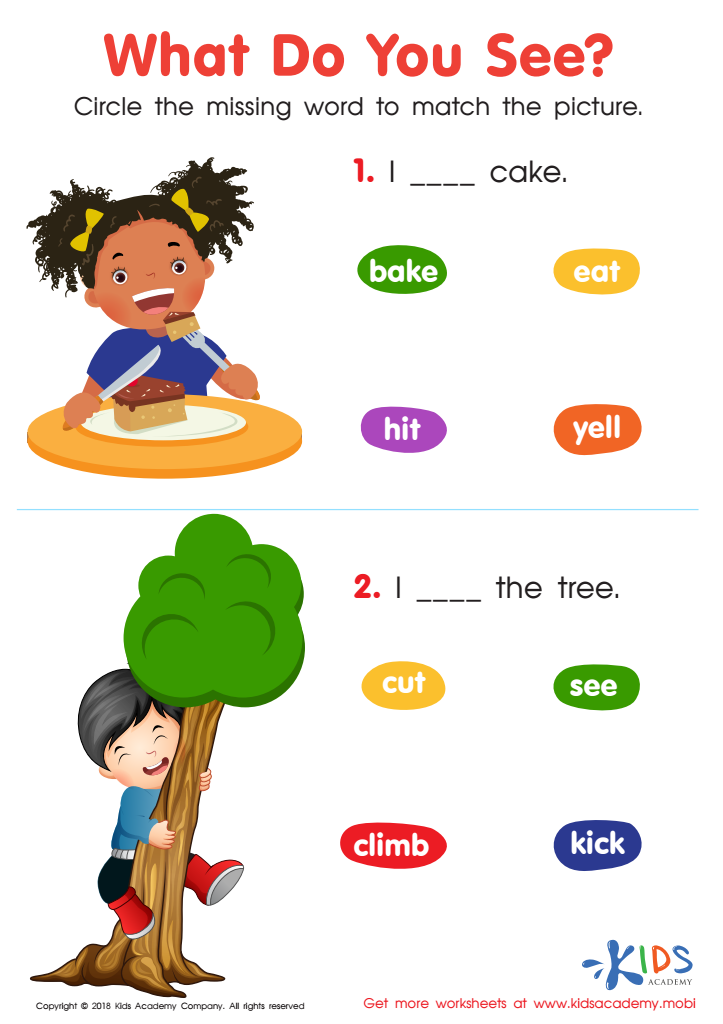

What Do You See? Reading Worksheet
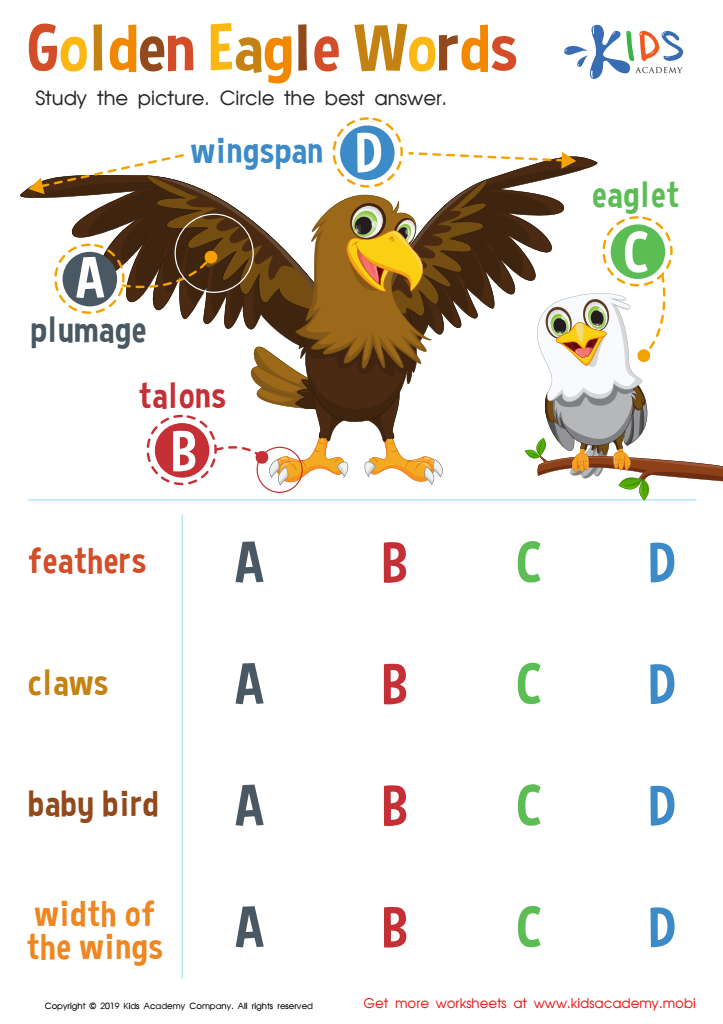

Golden Eagle Words Worksheet
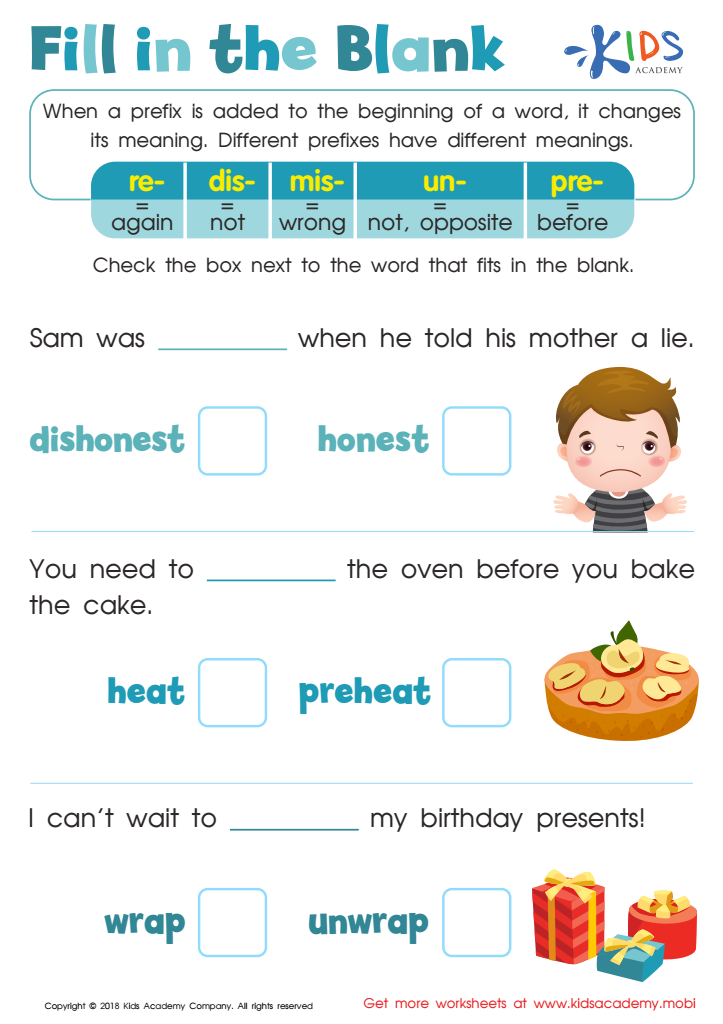

Reading: Fill in the Blank Worksheet
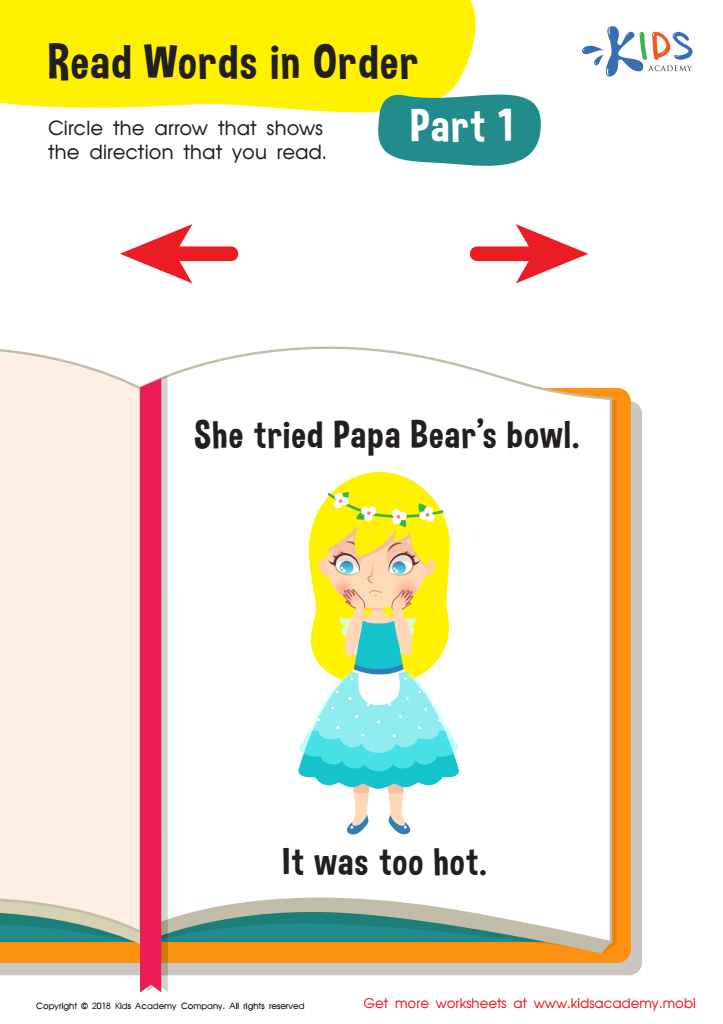

Read Words Order Part 1 Worksheet
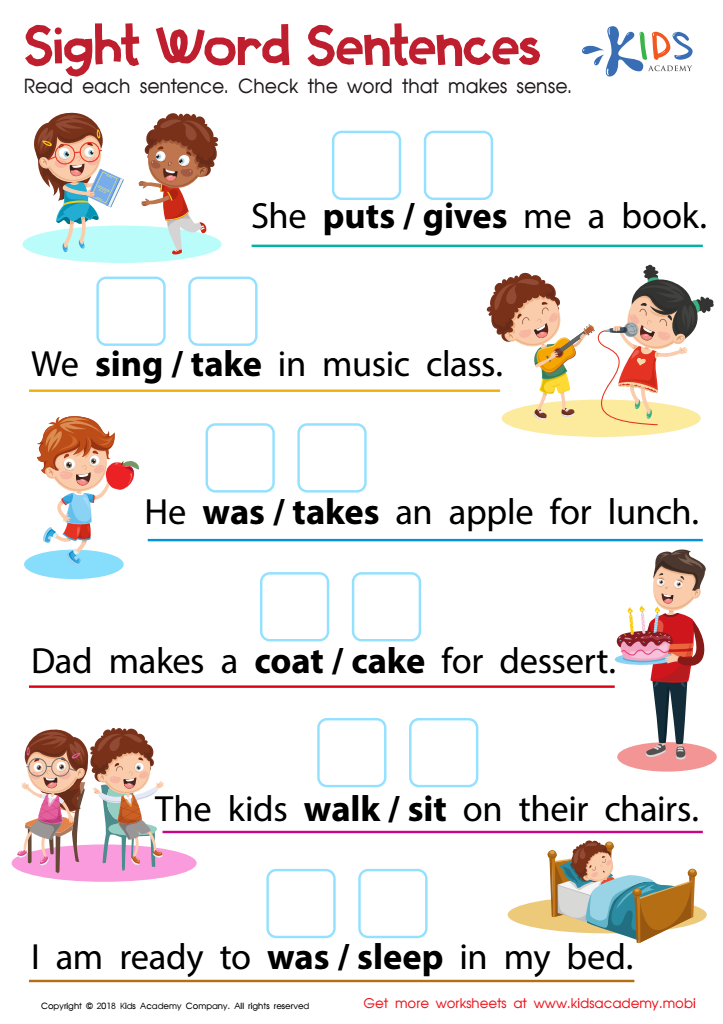

Sight Words Sentences Worksheet


Adjectives Worksheet
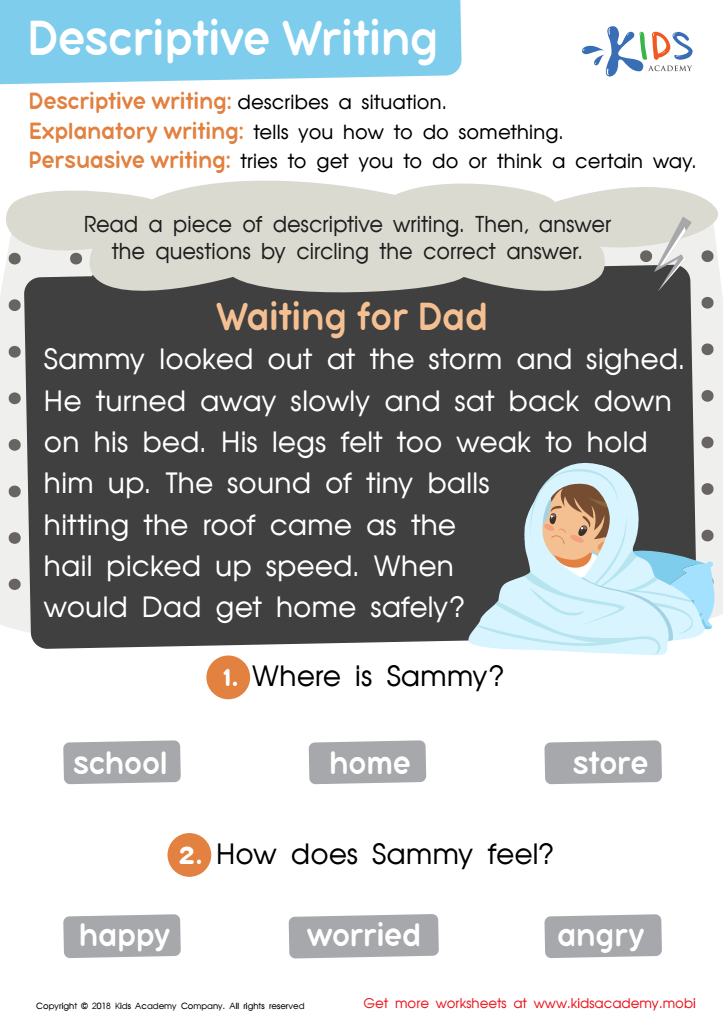

Descriptive Writing Worksheet: Part 2
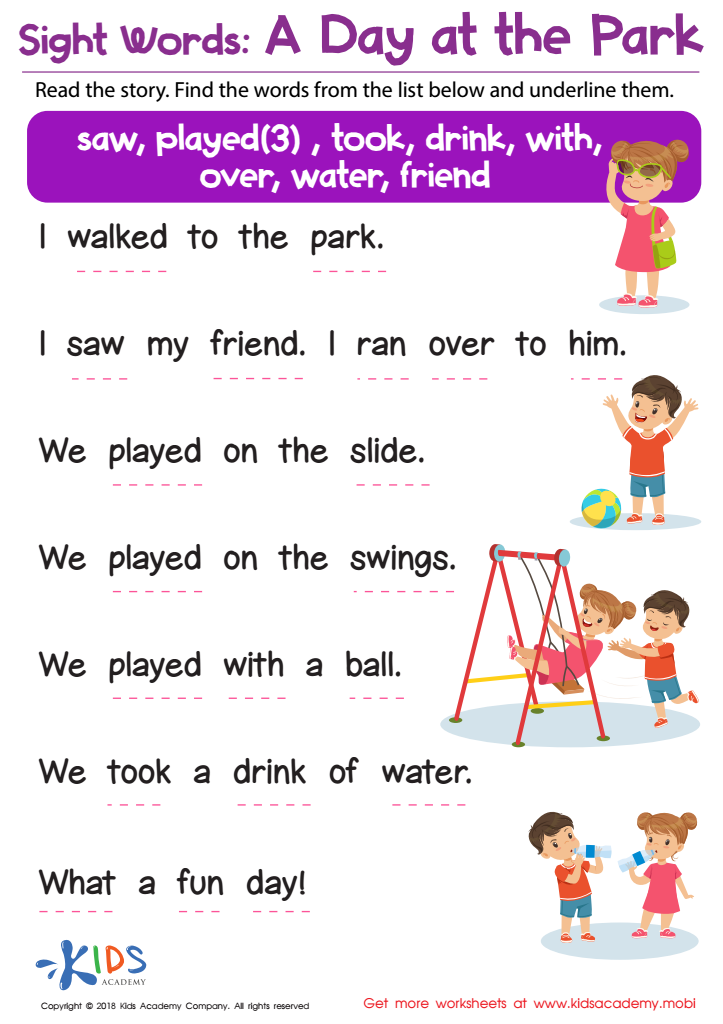

Sight Words: A Day at the Park Worksheet
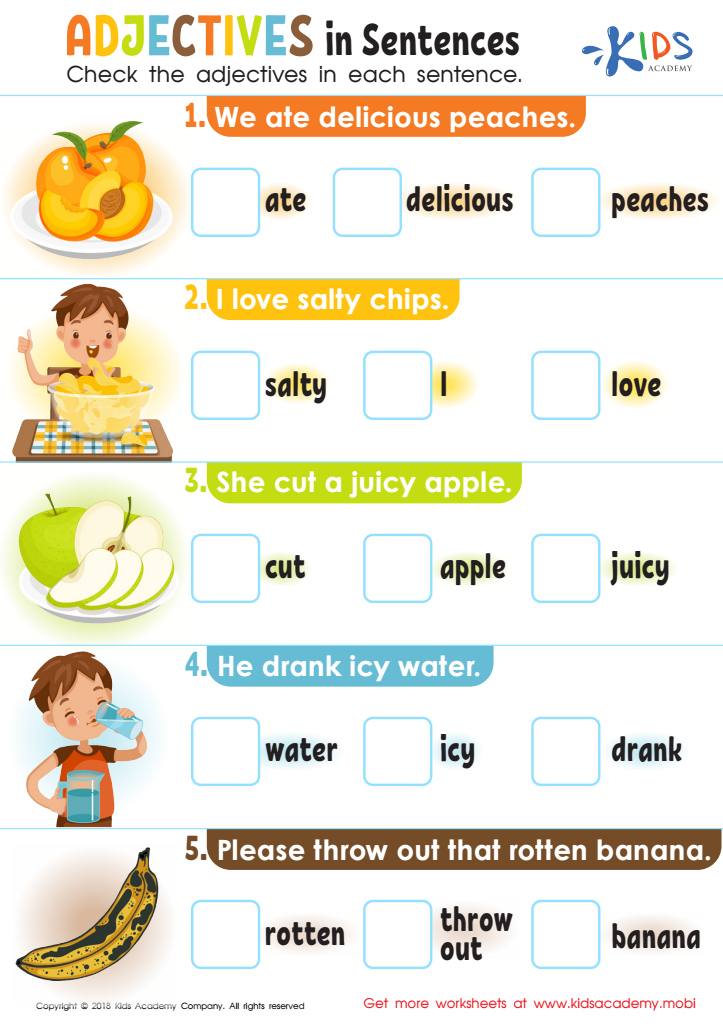

Adjectives in Sentences Worksheet
Parents and teachers should place high importance on sentence construction and reading comprehension for children aged 6-8 because these skills foundationally support a child's overall academic success and cognitive development. At this critical stage, children are transitioning from simple word recognition to more complex sentence structures. By mastering sentence construction, children develop clear communication skills, essential for both oral and written expression. Understanding how sentences are formed enhances their ability to convey thoughts logically and coherently.
Reading comprehension is equally vital as it not only boosts vocabulary and knowledge but also develops critical thinking and problem-solving skills. When young readers grasp the meaning behind sentences, they can better interpret stories, follow instructions, and connect ideas. This deepens their understanding of the world and fosters a love for learning. Additionally, competent reading comprehension skills are linked to improvements in other academic areas such as math and science because children develop the ability to follow complex word problems and detailed instructions.
Moreover, the confidence gained from reading fluently and constructing sentences correctly paves the way for positive educational experiences. Early proficiency in these areas sets the stage for lifelong learning habits, equipping children with tools to succeed both inside and outside the classroom.
 Assign to My Students
Assign to My Students





















